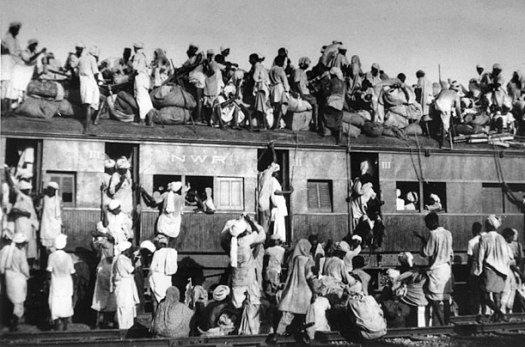
It’s too bad “Midnight’s Children” was a bust at the box office. I’m thinking that Deepa Mehta was perhaps the wrong director to give us the celluloid depiction of Salman Rushdie’s terrific book, which won the Booker Prize in 1981.
The protagonist and narrator of Rushdie’s story, Saleem Sinai, is born at the exact moment when India gained independence from Britain. The film, had it been a success, might have broadened knowledge of the painful history of my homeland, just like “Gandhi” had done years before. “Gandhi” won various Oscars in 1983, including best picture.
At 11:57 p.m. on August 14, 1947, the nation of Pakistan was born, carved out of land that was a part of British India. Five minutes later, at 12:02 a.m. on August 15, India was declared a free nation. To all my Pakistani and Indian friends: Happy Independence Day.
That independence came with a steep price. British India was partitioned along religious and political lines. Pakistan became the Muslim homeland and Muslims living in lndia crossed borders on the west and east. At the same time, Hindus and Sikhs in the new Pakistan made the trek to India. At least 10 million people were uprooted from their homes; some estimates say it was as many as 25 million.
It was far from peaceful, far from what Mahatma Gandhi, the father of non-violence had anticipated.
Hindus and Muslims butchered each other. Sometimes, entire trains from Punjab to Pakistan arrived with seats and bunks awash in red. Or vice versa. Women were raped; children slaughtered. There are no exact counts of the dead; just an estimate of 250,000 to 2 million.
Gandhi’s non-violent revolution turned exceedingly bloody. Brother against brother. Blood spilled in the name of religion.
My father’s generation remembers that ugly time in our history. His family was displaced from their home in Dhaka, Bangladesh, and started over in Calcutta. I heard stories from him and his friends and other Indians I have met from that era.
Atlanta physician Khalid Siddiq was one of those people. He told me he boarded a crowded train in New Delhi with his parents and four siblings to make a terrifying two-day journey through the farmlands of Punjab.
“I was very young but I think I understood what was happening,” he told me. “I could see the fear and anguish on my father’s face. It was a terrifying experience for everybody.”
Sohan Manocha told me he witnessed hundreds of killings as a young Hindu boy in Punjab. “That kind of horror leaves memories that are hard to erase, ” he said.
The stories of the painful birth of India and Pakistan are dying with the people who lived it. I am sorry I never recorded my conversations with people I knew.
Luckily, an oral history project, 1947 Partition Archive, is doing just that.
“The 1947 Partition Archive is a people-powered non-profit organization dedicated to documenting, preserving and sharing eye-witness accounts from all ethnic, religious and economic communities affected by the Partition of British India in 1947,” the website says. “We provide a platform for anyone anywhere in the world to collect, archive and display oral histories that document not only Partition, but pre-Partition life and culture as well as post-Partition migrations and life changes.”
I’m glad someone took the time to preserve history.
It’s especially important since tensions between India and Pakistan have never settled.
Just last week, five Indian soldiers were killed last week along the heavily militarized Line of Control, the de facto border in the disputed region of Kashmir. Since then skirmishes have flared tension between the two rival nations. Again. (India and Pakistan have already fought two full-scale wars over Kashmir, which Pakistan argues should have been a part of the newly formed Muslim nation in 1947.)
So on this Independence Day, I remember all those lives that were lost in the making of free nations, in the making of our destinies.

LikeLike
Everything is very open with a very clear explanation of the challenges.
It was definitely informative. Your website is very helpful.
Thank you for sharing!
LikeLike
Thank you for some other informative website.
The place else could I am getting that kind of information written in such a perfect method?
I have a challenge that I’m simply now working on, and
I’ve been on the look out for such info.
LikeLike